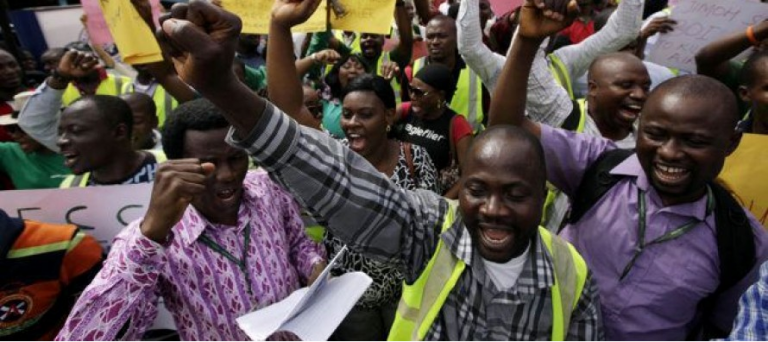
In the face of growing economic hardship that Nigerian workers have not found funny due to their meager earnings, the Nigerian Labour Congress had made a case for 50% wage increment for the workers.
But given the current revenue constraints being experienced by the government, upward review of workers’ salaries appears not feasible. Thus, it was a surprise when the Minister of Labour and Employment, Dr Chris Ngige, on Monday, announced that the federal government has plans to increase the N30,000 minimum wage to cushion the effects of rising cost of living on Nigerian workers.
Dr Ngige disclosed this in Abuja during the Nigeria Labour Congress public presentation titled, “Contemporary history of working-class struggle.” The minister said adjustment in minimum wage has become particularly necessary due to global inflation, adding that the move to increase salaries will address wage issues with the Academic Staff Union of University (ASUU).
Register for Tekedia Mini-MBA edition 19 (Feb 9 – May 2, 2026): big discounts for early bird.
Tekedia AI in Business Masterclass opens registrations.
Join Tekedia Capital Syndicate and co-invest in great global startups.
Register for Tekedia AI Lab: From Technical Design to Deployment (next edition begins Jan 24 2026).
“The inflation is worldwide; we shall adjust the minimum wage in conformity with what is happening now. The 2019 Minimum Wage Act has a new clause for a review. The adjustment has started with the Academic Staff Union of University because the stage they are with their primary employers, Ministry of Education, is a collective bargaining agreement negotiations.
“Under the principles of offer and acceptance, which is that of collective bargaining, ASUU can look at the offer they gave us and make a counter offer, but they have not done that. If they do that, we are bound to look at their offer. These are the ingredients of collective negotiations,” he said.
He acknowledged that in the current economic situation, the current N30,000 minimum wage is inadequate, as it cannot pay workers’ transportation fares to work for a month. Dr Ngige said in consideration of the current harsh economic realities, the federal government will grant an upward review of salaries.
The President of the Trade Union Congress, Festus Osifo, who also graced the presentation, said that the sole aim of the labor movement in the country is to protect the interest of workers, explaining NLC’s demand for a 50% wage increase for workers.
However, while the move is being widely applauded, attention has been drawn to president Buhari’s statement, which contradicts the minister’s.
Last month, while speaking to the Central Working Committee of Association of Senior Civil Servants of Nigeria (ASCSN), who had paid him a courtesy visit at the Presidential Villa, Abuja, Buhari said the federal government would not be able to increase salaries of civil servants for now. He said salary increments are impossible now due to loss of revenue to crude oil theft and global economic crisis.
“I wish to urge you to appreciate the revenue constraints being presently faced by government, which is caused mainly by the activities of unscrupulous citizens through the theft of our crude oil, a major contributor to our revenue base,” Presidential spokesman Femi Adesina said, dismissing any hope for salary review.
This statement is in direct contrast with the labor minister’s promise of salary increase, and going by Nigeria’s current economic realities, it is easier to believe Buhari’s statement.
On Monday, the Debt Management Office (DMO) reported that Nigeria’s public debt profile has risen to N42.84 trillion, a N1.24 trillion increase in three months, indicating government’s reliance on borrowing to fund capital expenditures as oil revenue plunges.
With empty treasury and dwindling revenue, which have impacted the government’s ability to fulfill its financial agreement with ASUU, the promise of increasing workers’ salary at this time appears practically impossible.



